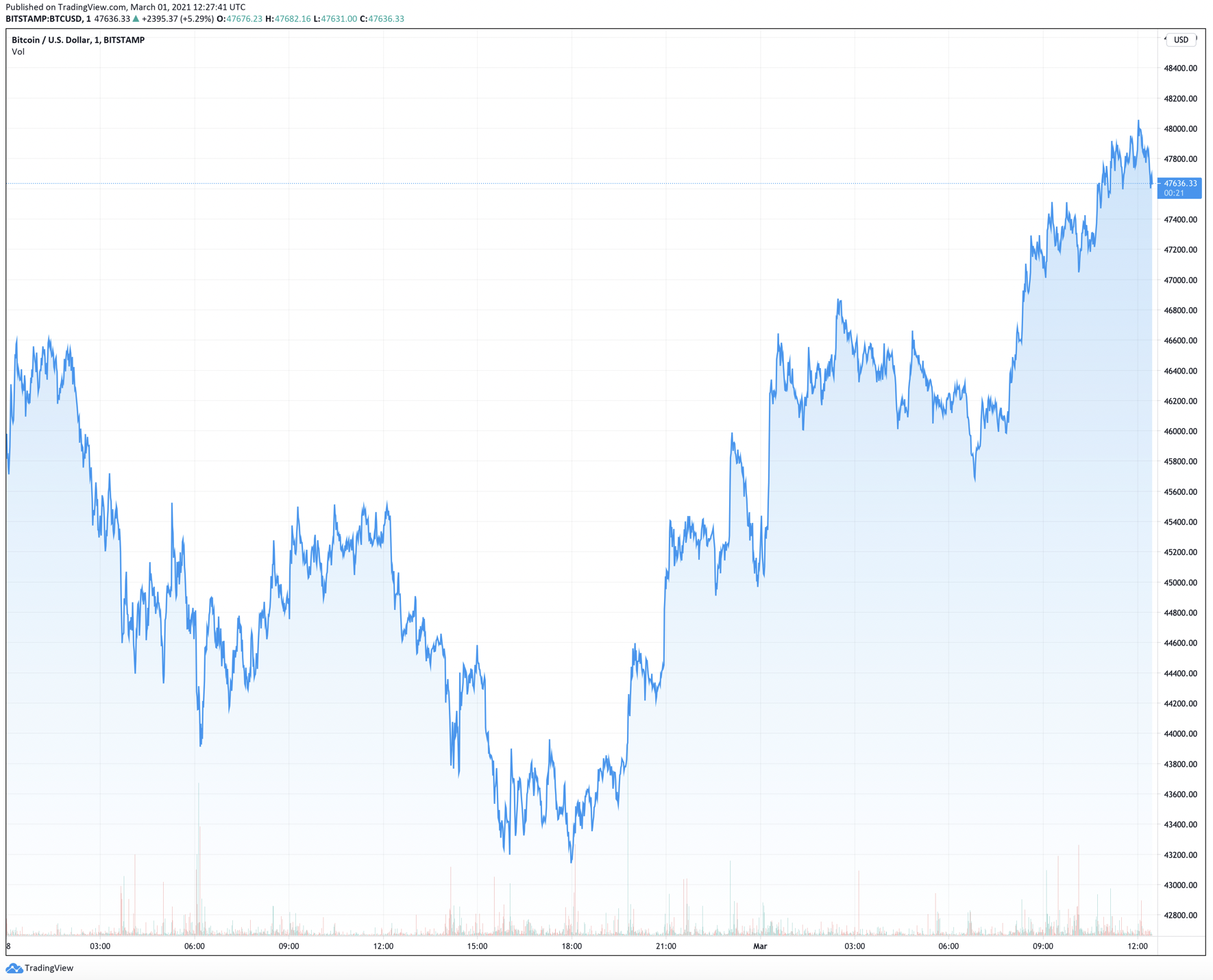JPMorgan: New ETF products — and investors cashing out — are behind the collapse of the GBTC premium
The premium at which the Grayscale Bitcoin Trust (GBTC) trades has turned negative — and two factors are likely behind the shift, according to an analysis by JPMorgan.
Grayscale’s GBTC has historically traded at a high premium relative to the underlying bitcoin it tracks. Since mid-December, that premium has steadily declined from 35.79% the week of December 18 to a discount of -2.66% last week, according to data from The Block.
Analysts at JPMorgan attribute the reversal to two factors. First, institutions are taking profits on one of the more popular trades in crypto markets. The trade involves subscribing to the GBTC trust at net asset value (NAV) and then, after a six-month lock-up period, selling shares to pocket the premium.
“Some of these institutional investors are now selling GBTC to monetize the premium,” the JPMorgan research note stated. “As it materializes, this selling pressure has been not only putting downward pressure on GBTC premium to NAV, but also on bitcoin prices given the still high flow and signalling important of GBTC.”
The second factor leading to the collapse of the GBTC premium is the recent launch of new bitcoin exchange-traded funds in Canada, according to the JPMorgan analysts.
“We argued before in our previous F&L of January 8th that the introduction of a bitcoin ETF accessible to US-based investors would erode GBTC’s flow impulse and cause a collapse of its premium to NAV,” the note stated. “In turn, we had also argued that an erosion of GBTC inflows and a collapse of its premium would likely have negative near-term implications for bitcoin markets given the flow and signaling importance of GBTC.”
© 2021 The Block Crypto, Inc. All Rights Reserved. This article is provided for informational purposes only. It is not offered or intended to be used as legal, tax, investment, financial, or other advice.
Go to Source
Author: Frank Chaparro
